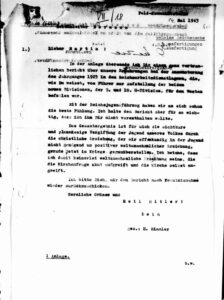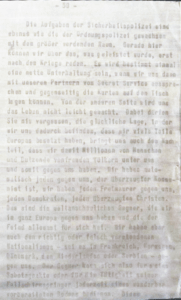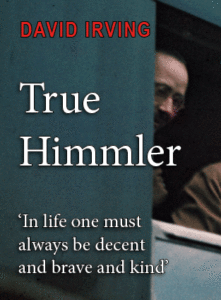On this second day of the year, I would like to elaborate a little on what I have been saying recently about depression.
If Kali Yuga is pure poison for the priest of the sacred words, how can one find some encouragement?
Encouragement comes naturally through dedication, but only when that work is aimed at preserving and advancing the 14 and 4 words, which define the purpose behind my struggle. What happens when virtually all Aryans have degenerated, and no one is properly fighting for those words?
I can entertain myself for a few minutes a day on X, as there are several neo-Nazis who speak as I usually speak. But all of them lack a plan for how we are going to take power. For such a plan, we would need to live very close together, always eat together as in the Spartan syssitia, and conspire on how we could wake other whites from their catalepsy.
That alone would lift the spirits.
But I have no one in this third-world metropolis with twenty million non-whites to talk to. And the saddest thing is that Western racialists living in predominantly Aryan towns also have no one to talk to in their cities or villages.
A normie works for more comfort: his deity is the god of riches, Mammon. For us, if there is such a thing as following the decrees of providence, these are the sacred words.
But what can a priest do in the darkest hour?
Basically, get depressed because white nationalists are, as we have seen, de facto conservatives and have no plan to take power in their nations.
If Russia’s entry into Kiev fatally disrupted the traitorous European governments, my spirits would rise because that could mark the beginning of the end of Kali Yuga.
But that’s not happening yet…
The horrible dilemma that a priest on the other side of the Atlantic and I suffer from is that it is impossible for us to wait passively for that collapse because that wait leads to exasperating depression.
What to do then?
If there were already several priests, even if we didn’t live together, we could try to do something on Rumble. The West’s Darkest Hour has already been exhausted in the written word, but audio-visual communication, if it were every day, would reinvigorate this blog.
But even that is not possible due to the language barrier (I write in Spanish and then convert the text into English with a free online translator; then I correct the software’s syntax).
That condemns me to a purely textual blog, although if I already had young pupils aspiring to the priesthood, they would be using A.I. to translate my audio-visual monologues into English. But I have realised that I don’t work well when I’m just talking solo to the camera. I need at least one other person to interact with verbally.
It seems incredible, but for a Kalki apprentice like me, what would lift my spirits the most would be a nuclear exchange between Europe and Russia so that the System would be destroyed in a single day, even though in the coming months I could die from nuclear winter if the US committed the stupidity of intervening.
Nuclear fantasy aside, what would lift my spirits stratospherically would be to live with people who think like me. I couldn’t live with the Groypers, for example, because they have no plans for ethnic cleansing in the US. It has to be someone who religiously believes in the 14 words. And if another man also believes in the 4, he would be a brother, a soul mate.
What to do in a city where one is a sort of Diogenes going out with a lamp in broad daylight to find a single man and never seeing him? How can one not get depressed if we add to that the fact that white nationalism is phoney (unless someone vehemently believes and speculates in scenarios like The Turner Diaries)?
Every single day becomes a struggle against the noonday demons, for which I am not in the least bit to blame. The culprits are the millions of Aryan males who are doing nothing: lambs to the slaughter of the anti-white System that covers the West.
Would a way to entertain myself in the coming days be to offer constructive criticism of the Third Reich pamphlets I own? Years ago, I realised that the exoteric part of National Socialism lacked the depth of the esoteric part.
Himmler in letter to Bormann on how Christian education has poisoned our youth:
 “We already have the best contact with the Reich Youth Leadership. But I think the report is so important that I didn’t want to withhold it from you. For me, the overall result is the visible and systematic poisoning of the youth of our people through Christian education, which we obviously do not provide enough positive ideological education for in our youth, especially now in wars.” [1]
“We already have the best contact with the Reich Youth Leadership. But I think the report is so important that I didn’t want to withhold it from you. For me, the overall result is the visible and systematic poisoning of the youth of our people through Christian education, which we obviously do not provide enough positive ideological education for in our youth, especially now in wars.” [1]
Part of my depression stems from the despair that more than eighty years ago the Germans had hit the nail on the head. In contrast, today’s American racialists (Europeans are punished if they dare to speak out, as happened to Brigitte Bardot) cling to Judeo-Christianity: the primary cause of white decline.
__________
[1] Source: NARA, RG 242, T-175, Roll 131 p.640, National Archives.
I once told a high-ranking Church representative: Your time is over; now you will face exactly what you did to us. The 2000 years where you lived in the sunshine and we in the shadows have come to an end. Now, we will live in the sunshine, and you in the shadows.




